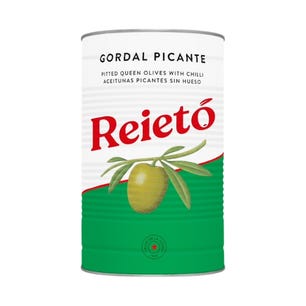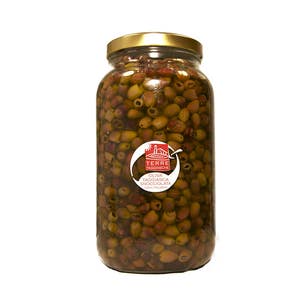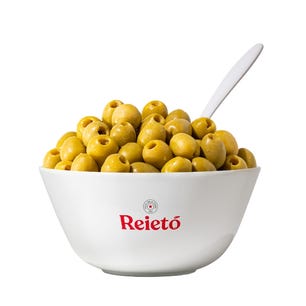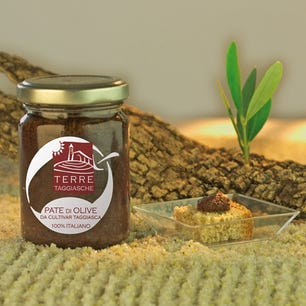Olives
ITALIAN FOOD
Italian Olives: the Secrets of a Mediterranean Treasure
Olives, a key component of Mediterranean cuisine, hold a special place in Italian gastronomy. Italy, with its rich history and diverse climates, offers a unique environment for olive cultivation, producing some of the best olives in the world.
The history of olives in Italy dates back thousands of years, intertwined with the cultural and culinary evolution of the region. Olives were brought to Italy by the Phoenicians and Greeks, and they quickly became a staple in the Italian diet. The Romans further cultivated olives, refining growing techniques and expanding their use in cooking.
Olive cultivation is an art as old as civilization itself: it's a practice that requires patience, dedication, and a profound understanding of the environment. Olives demand specific conditions to flourish. They thrive in Mediterranean climates, characterized by hot, dry summers and mild winters. The trees require full sunlight and well-draining soil.
Pruning is a critical aspect of olive cultivation. It helps to shape the tree, ensuring that sunlight and air can penetrate the canopy, which is crucial for the development of the fruit. While olive trees are drought-tolerant, they do require consistent watering, particularly during the dry summer months. Olives picked too early can be overly bitter, while those left too long on the tree may become overripe. The olives are either hand-picked or collected using mechanical shakers.




Taggiasca Olives: A Taste of Liguria's Culinary Tradition
The Taggiasca olive, native to the Ligurian region of Italy, is a true culinary gem that has captivated the palates of food enthusiasts worldwide. This small yet flavorful olive variety is steeped in history and tradition, and this 300-word article aims to shed light on its unique characteristics and uses.
The Taggiasca olive gets its name from the town of Taggia, where it was first cultivated by Benedictine monks in the 11th century. The olives are small, with a distinctive almond shape, and boast a unique flavor profile that is both sweet and fruity with a slight almond aftertaste. The olives are typically harvested when they are fully ripe, resulting in their characteristic dark purple to reddish-brown color.
Taggiasca olive trees are relatively small, making them well-suited for the terraced landscapes of the region. The olives are usually harvested from November to February, with the exact timing depending on the desired ripeness and end-use of the olives.
Taggiasca olives are a versatile ingredient in the kitchen, used both as table olives and for olive oil production. The olives have a delectably sweet and fruity flavor, with a slight bitterness that adds complexity to their taste profile.
Like other olive varieties, Taggiasca olives are rich in monounsaturated fats, antioxidants, and anti-inflammatory compounds, contributing to their health benefits. Incorporating Taggiasca olives into one’s diet can be a delicious way to enjoy these healthful properties.


Italian Cooking: Olives in Every Bite
Italian cuisine is renowned worldwide for its delicious flavors, fresh ingredients, and rich history. At the heart of many traditional Italian dishes are olives, a versatile and flavorful ingredient that adds a unique twist to any recipe.
Olives have been a staple in Italian cooking for centuries, thanks to the country’s ideal climate for olive cultivation. They are used in various forms, including whole, sliced, or as olive oil, and each form brings a distinct flavor and texture to dishes.
One of the most famous Italian dishes featuring olives is Pasta Puttanesca. This zesty and aromatic dish combines black or green olives with capers, garlic, anchovies, and tomatoes, creating a rich and flavorful sauce that is perfect for coating spaghetti or other pasta types.
Chicken Cacciatore is a hearty and comforting dish, featuring chicken cooked with a robust tomato sauce, onions, bell peppers, and a generous handful of olives. The olives add a salty and briny flavor, balancing the sweetness of the tomatoes and enhancing the overall taste of the dish.
Olive tapenade is a savory spread made from finely chopped olives, capers, anchovies, and olive oil. This spread is incredibly versatile and can be used as a dip, sandwich spread, or topping for grilled meats and vegetables.
Focaccia is a beloved Italian flatbread, and the Ligurian version incorporates olives in a spectacular way. This airy and crispy bread is generously dotted with olives, rosemary, and sea salt, resulting in a savory and aromatic treat. The olives not only add a burst of flavor but also create delightful pockets of juiciness in the bread. To make Ligurian Olive Focaccia, you simply need a basic focaccia dough, a handful of pitted olives, fresh rosemary, and a sprinkle of sea salt. The result is a crispy and flavorful bread that's perfect as an appetizer, side dish, or snack.


Health Benefits of Olives
Olives, cherished components of the Mediterranean diet, offer a unique taste and a plethora of health benefits. These small fruits are packed with antioxidants that protect the body from the damaging effects of free radicals, potentially reducing oxidative stress and inflammation. This antioxidant-rich profile may also play a pivotal role in lowering the risk of chronic diseases.
The monounsaturated fats in olives are considered beneficial for heart health, contributing to improved cholesterol levels and a reduced risk of heart disease. In addition to their heart-healthy fats, olives also possess anti-inflammatory properties that can contribute to overall health and wellbeing, especially considering the link between chronic inflammation and various health issues.
Olives are a valuable source of essential vitamins and minerals, including vitamins E, A, and D, as well as iron and copper. These nutrients support immune function, promote healthy skin, and are crucial for maintaining overall good health. Furthermore, olives can be a part of a balanced diet that supports weight management and may even play a role in reducing the risk of obesity.
The dietary fiber found in olives is beneficial for digestive health, aiding in the prevention of constipation and maintaining a healthy gut. Additionally, some research suggests that compounds in olives may help prevent bone loss, contributing to better bone health.
Buy olives for your recipes
Longino & Cardenal
Longino & Cardenal stands today as one of Italy's leading "food globetrotters." With passion and courage it carries out a continuous search for the best raw materials, often little known to most, in order to meet the new trends in consumer behavior that seek excellent products proposed in innovative forms. All our deliveries use specialized, refrigerated couriers.











